The past perfect is used to state which action happened first. When we talk about something in the past and we want to mention something which happened before that past action we use the past perfect.
I have named it ⋘the past before the past⋙ and in Spanish corresponds with ↪Pretérito Pluscuamperfecto↩ ➣ I had finished ➣ Yo había terminado
➢She told me she had never eaten meat ➫ Me dijo que nunca había comido carne
➢The plants were dead because it had not rained ➫ Las plantas estaban muertas porque no había llovido
➢If you had heard the shot you would have run off to call the police ➫ Si hubieras oído el disparo habrías ido corriendo a llamar a la policía
| I had eaten ➫ I’d eaten | I had not eaten ➫ I hadn’t eaten |
| You had stayed ➫ You’d stayed | You had not stayed ➫ You hadn’t stayed |
| She had gone ➫ She’d gone | She had not gone ➫ She hadn’t gone |
| They had grown ➫ They’d grown | They had not grown ➫ They hadn’t grown |
La contracción de had es ➣ ‘d Pero… ¿Cómo saber si ➣ ‘d es contracción de had o de would ? Muy fácil. Si el verbo está en infinitivo es would y si está en participio es had .
➫I’d like ➬me gustaría ➫ I’d liked ➬me había gustado
➫ We’d go ➬iríamos ➫ We’d gone ➬habíamos/hubimos/hubiéramos/hubiésemos ido
Aesop, (Esopo in Spanish), was a Greek fabulist and storyteller who lived in ancient Greece between 620 and 560 B.C. His tales are known as Aesop’s fables. They are characterized by animals, people or objects that speak, solve problems and lead to a moral lesson with a concise maxim or saying.
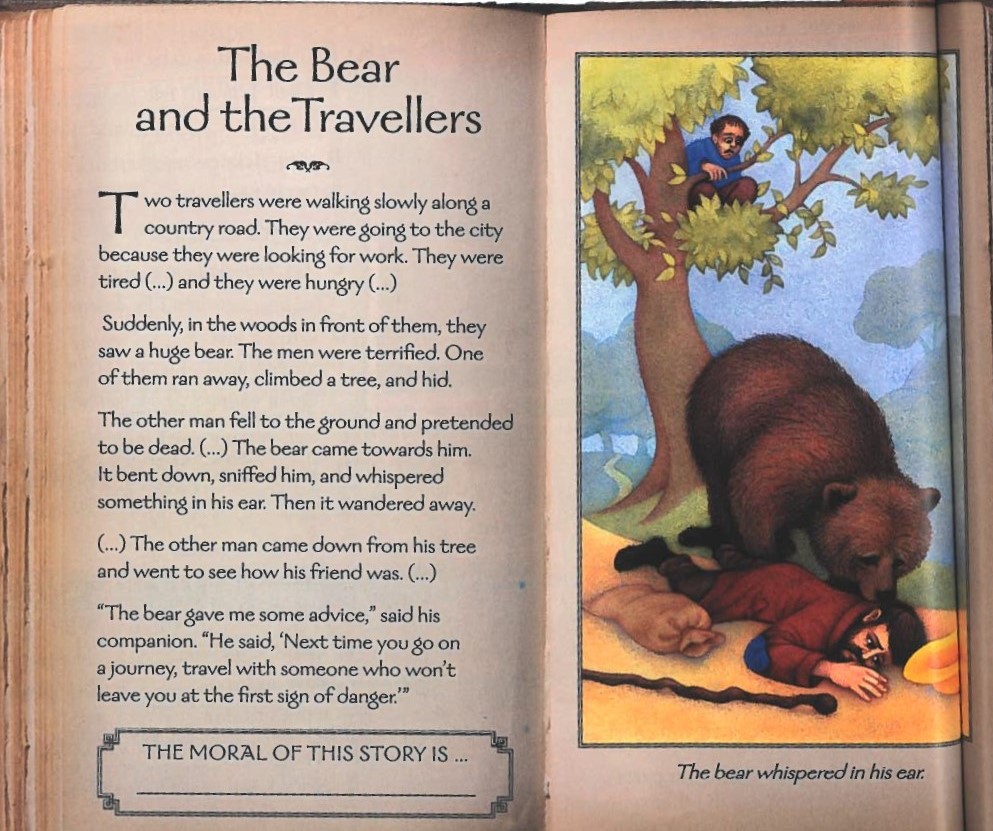
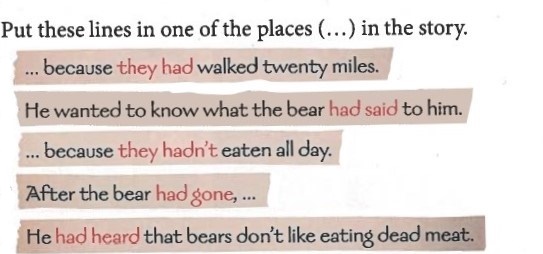
reference: Headway Pre-Intermediate Oxford
Choose one of the three sayings to summarize the moral of the fable
“Friendship is like a glass ornament, once it is broken it can rarely be put back together exactly the same way.”
“A true friend is someone who is there for you when he would prefer to be anywhere else.”
“Friends are easy to make and difficult to keep.“
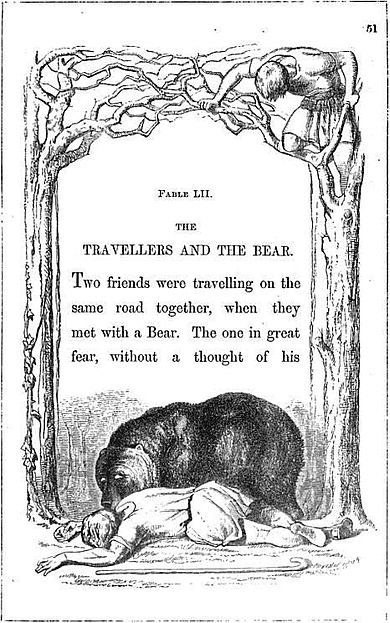
The Bear and the Travellers is a story of two friends walking through rough country who are suddenly confronted by a bear. One of the travellers saves himself by climbing up a tree while the other throws himself on the ground and pretends to be dead. The bear comes near him, sniffs him and leaves. Then the friend in the tree came down and laughing asked what the bear had said to him. «It was some good advice,» said his friend; «he told me never to trust someone who deserts you in need.»
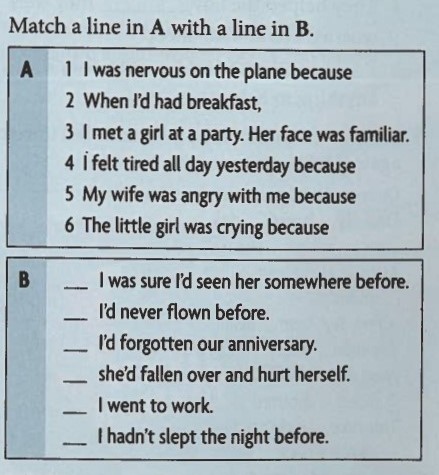
ANSWERS
1 -b 2 -e 3 -a 4 -f 5 -c 6 -d
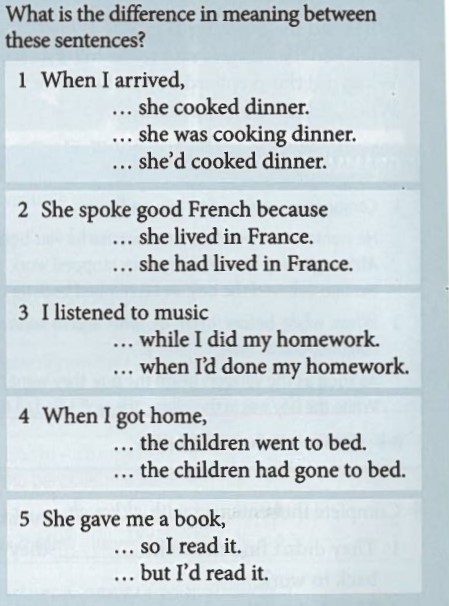
Let’s see how it works in Spanish:
1 ➨ Cuando llegué,
… ella hizo la cena.
… estaba haciendo la cena.
… había hecho la cena.
2 ➨ Ella hablaba buen francés porque
… vivía en Francia.
… había vivido en Francia.
3 ➨ Yo escuchaba música
… mientras hacía los deberes.
… cuando hube hecho los deberes.
4 ➨ Cuando llegué a casa,
… los niños se acostaron.
… los niños se habían acostado.
5 ➨ Ella me dio un libro,
… para que lo leyera.
… pero ya lo había leído.
